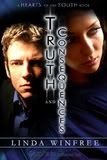Check Your Ego at the Door
A few weeks ago I attended a local writer's conference. Despite the small town setting and relatively small number of attendees, we had some big names running the workshops--multi-pubbed, bestselling authors, well-known and respected agents, university instructors.
Friday night I took a course on character development.
If you keep up with this blog, you know that I've been steeped in character development since my agent made the vague comment on Cassie, Rio and Saul in Safe In Enemy Arms: "They're not...3-D enough."
That was about six months ago.
In accordance with my compulsive nature, I went on a quest for those "real" qualities. I analyzed my manuscript, outlined each character's GMC, history, quirks. I literally spent months and months researching the hell out of the all-important character development. I read books and articles by the best of the best, took courses, discussed it via e-mail with bestselling authors. I even wrote a three-part article on the subject and posted on this blog: Deepening Character with a Powerful Tri-Fecta: Internals, POV Filters & Props.
So, when I took this course at the conference, I wasn't really expecting to learn anything earth shattering, but rather seeking that mysterious element of understanding, grasping at that elusive skill that continued to hide in the shadows, just out of my reach.
I enjoyed the lecture and the instructor. There was no ah-ha moment. There was no identification of the missing link. The majority of his points were things I'd heard or read somewhere else. He echoed quite a bit of knowledge I already had rattling around in my brain.
I could have written it off as just that--nothing knew. But on the drive home, my mind drifted back over the lecture, reanalyzed his examples. There I found several concepts I hadn't considered in quite the way he'd presented them, hadn't taken notice of their importance in my writting to the degree I should have. (If/when I get my head around any of them sufficiently, you'll be the first to know.)
The more I thought about it, the more I saw. The more I saw, the more I learned.
And, the more I learned, the more I realized I didn't know.
Many of you, or rather, those of you with an open mind, are probably familiar with that phenomenon.
The next day I was lounging on the steps of an outdoor sitting area with the other conference attendees, doing what all good writers should always be doing: eavesdropping.
Several of the people in a group nearby had been at the same course on character development the night before and were discussing the quality of the lecture and its content.
 I heard things like:
I heard things like:
"Nothing I haven't heard before."
"He went off on too many tangents, not a very good lecturer."
"Have you read his work? It's not very interesting."
And, my favorite, which several of the group's members echoed: "I got about fifteen minutes of good information out of it."
It was a ninety-minute lecture. The speaker had written eleven novels, sold nine of them. He'd taught writing courses at a Los Angeles university for over twenty years. He ran his own editing business on the side.
And they got fifteen minutes of good information? They didn't hear anything they didn't already know? He's not a good lecturer? His work isn't interesting?
I had the biggest revelation of the conference right then: The reason so many writers write for years and don't improve, the reason so many writers write but never get published, is because their egos are too damned big.
As Ashley Grayson said in his lecture How to Write a Book Worthy of a Second Printing: A writer has to be a master of the craft.
The first step toward mastering the craft (IMHUO): check your ego at the door.
Friday night I took a course on character development.
If you keep up with this blog, you know that I've been steeped in character development since my agent made the vague comment on Cassie, Rio and Saul in Safe In Enemy Arms: "They're not...3-D enough."
That was about six months ago.
In accordance with my compulsive nature, I went on a quest for those "real" qualities. I analyzed my manuscript, outlined each character's GMC, history, quirks. I literally spent months and months researching the hell out of the all-important character development. I read books and articles by the best of the best, took courses, discussed it via e-mail with bestselling authors. I even wrote a three-part article on the subject and posted on this blog: Deepening Character with a Powerful Tri-Fecta: Internals, POV Filters & Props.
So, when I took this course at the conference, I wasn't really expecting to learn anything earth shattering, but rather seeking that mysterious element of understanding, grasping at that elusive skill that continued to hide in the shadows, just out of my reach.
I enjoyed the lecture and the instructor. There was no ah-ha moment. There was no identification of the missing link. The majority of his points were things I'd heard or read somewhere else. He echoed quite a bit of knowledge I already had rattling around in my brain.
I could have written it off as just that--nothing knew. But on the drive home, my mind drifted back over the lecture, reanalyzed his examples. There I found several concepts I hadn't considered in quite the way he'd presented them, hadn't taken notice of their importance in my writting to the degree I should have. (If/when I get my head around any of them sufficiently, you'll be the first to know.)
The more I thought about it, the more I saw. The more I saw, the more I learned.
And, the more I learned, the more I realized I didn't know.
Many of you, or rather, those of you with an open mind, are probably familiar with that phenomenon.
The next day I was lounging on the steps of an outdoor sitting area with the other conference attendees, doing what all good writers should always be doing: eavesdropping.
Several of the people in a group nearby had been at the same course on character development the night before and were discussing the quality of the lecture and its content.
 I heard things like:
I heard things like:"Nothing I haven't heard before."
"He went off on too many tangents, not a very good lecturer."
"Have you read his work? It's not very interesting."
And, my favorite, which several of the group's members echoed: "I got about fifteen minutes of good information out of it."
It was a ninety-minute lecture. The speaker had written eleven novels, sold nine of them. He'd taught writing courses at a Los Angeles university for over twenty years. He ran his own editing business on the side.
And they got fifteen minutes of good information? They didn't hear anything they didn't already know? He's not a good lecturer? His work isn't interesting?
I had the biggest revelation of the conference right then: The reason so many writers write for years and don't improve, the reason so many writers write but never get published, is because their egos are too damned big.
As Ashley Grayson said in his lecture How to Write a Book Worthy of a Second Printing: A writer has to be a master of the craft.
The first step toward mastering the craft (IMHUO): check your ego at the door.







5Comments:
LOL. Nice analogy.
I think the longer you write, and the more experience you get, the more you realize that you don't know nearly as much as you thought.
lol
There was a point though, when I had a good grasp of POV and show don't tell and all the other elements of writing--that I'd go to conference work shops and just surface listen. So I'd come away feeling like I hadn't learned anything new.
With the more experince you gain, though-- you begin to realize that your knowledge just barely scratches the surface.
So very true, Theresa.
I agree. There's *always* something you can learn - even when you think you can't. Writers who think they know everything are major turn offs for me. Makes me not want to buy their books.
Me too, E. Another reason to keep an open mind, watch what you say in public (or anywhere or to anyone that could become public) and treat others the way you'd like to be treated.
I'm a big believer in karma, kharma, karmah? You know what I mean. :-)
Post a Comment
<< Home